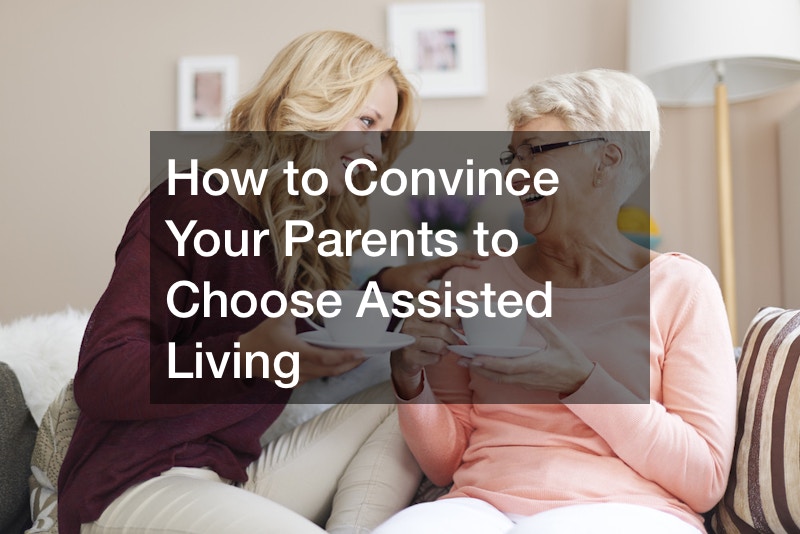
How to Convince Your Parents to Choose Assisted Living

Some patients aren’t sure about what staying at a senior living facility will be like for them. They might think these centers are more similar to nursing homes than they are. However, even after looking at certain assisted living terms, it may be clear that the experiences of nursing home and assisted living center patients are very different.
The people at senior living centers will continue to lead active and busy lives. They’ll get certain amounts of assistance with certain chores throughout the day. The people at these facilities usually won’t need more help than that. Nursing home patients will often spend lots of time in their rooms. These patients typically have chronic health and medical problems that need to be addressed continually.
Patients might search for “you’re at home assisted living” when they’ve decided that these centers are right for them. Getting examples of “just for seniors assisted living” shouldn’t be difficult. These centers are common today. They’re also typically less expensive than nursing home centers. Patients need lots of consistent care at nursing homes, which tends to increase the associated costs. Senior living centers can be more affordable than patients might think. Assisted family living might also be possible.
Watching a parent or a loved one age is not an easy thing. As much as there may be resistance, it could be time to consider different senior housing options to ensure your loved one is being taken care of properly as they age.
It is important to keep in mind that nursing homes are not for those who are capable of taking care of themselves, rather adult assisted living is a philosophy of care and services which promote independence and dignity.
Unsure of how to approach this subject with your parents? Here are some easy and simple ways that will help you convince your parents to choose assisted living.
Start the discussion now
Even if you don’t think your parent is ready for assisted facility living just yet, it is important that you broach the subject sooner rather than later. This is because you will want to get your loved one used to the idea long before a health crisis may put them there. Simple questions such as “Where do you see yourself living when you get older?” and “How do you want to be taken care of when the time comes and you can no longer take care of yourself?” will give you a good feeling as to where they stand.
Be patient and think before you react
It may be hard to be patient with your loved one if they are being stubborn about moving and changing their lifestyle. If they are resisting the idea of moving, think about why. They may be sad about their life changing, or may be completely uncomfortable with the idea of a stranger giving them care. Losing your patience will only exacerbate the problem.

Offer options and give them as much information as possible
If possible, never make a decision without your loved one there. While you may be better suited to make the final decision, it is imperative your loved one is with you every step of the way. This includes bringing them to tour the facility, on appointments with nurses and caregivers, and giving them a say in developing a daily schedule. This will boost their happiness in their decision and create an environment of trust between you.
With these three steps in mind, you will be on your way to convincing your parents or loved one that assisted living is the best option for their current situation. If you have any questions about the process, feel free to call our professionals today.
